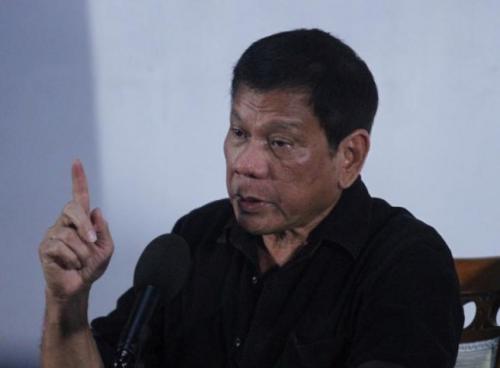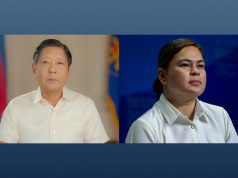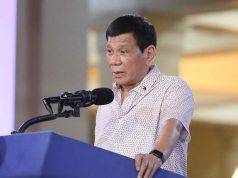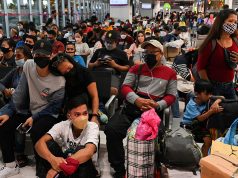Author Cesar Polvorosa Jr. is a business school professor of economics, world geography, and international business management in Canada. He is also a published writer in economics, business, and literature.
“The crisis consists precisely in the fact that the old is dying and the new cannot be born; in this interregnum a great variety of morbid symptoms appear.” – Antonio Gramsci (Prison Notebooks)
Britain made the stunning decision to exit the EU. Trump may yet triumph in the upcoming US Presidential elections. Duterte is the new Philippine President. There’s more: Modi and Jokowi had emphatic victories in India and Indonesia respectively. President Erdogan of Turkey repulsed a coup attempt through his own version of “People Power.” What connects these seemingly disparate developments in various regions of the world? Indeed, there is a method in this madness which refers to a logic, a reason or explanation that links these seemingly disconnected and bewildering strands in geographically diverse places in economics and politics and their intersection.
These myriad developments underscore the global rise of new populism in reaction to the adverse impacts of intensifying world-wide trends since the advent of the 21st century. These include the interconnected uneven effects of globalization and neoliberalism, secular stagnation of the global economy, the rise of inequality, the flood of immigrants and refugees, terrorism and the dominance of supranational organizations. We are in a perilous era of uncertainty and turmoil.
Swing of the Pendulum and Duterte in Context
In December 2015 I argued that the meteoric ascent of Duterte to the Philippine Presidency is best understood not as an isolated Philippine phenomenon but as a manifestation of broader geopolitical trends in the campaign against criminality and security threats and the focus on grassroots development. I noted that “in what may herald another swing of the pendulum some populist presidents have emerged which is a backlash to the elitist and technocratic leaders of the past often seen as corrupt, ineffectual, and out of touch with the reality of everyday lives of their citizens.” (Duterte in Context). The past six months confirmed the gathering momentum toward populism in reaction to the inimical effects of neoliberalism.
The pendulum represents the swings in currency between alternative models of governance, economic systems, and intellectual currents. While declaring “history repeats itself” is a hyperbole; in important ways many of the current pivotal trends represent a throwback to an earlier era of authoritarianism, populism, ardent nationalism, economic protectionism, age-old conflicts, ethnic and religious tensions and subsequently, historical revisionism.
Past the High Noon of Globalization and Neoliberalism
Western Europe is a compact, densely populated region with fertile plains and numerous sea ports that makes it ideal for economic and political integration. With nation states competing for power and resources, Europe had been plagued by wars over the past millennium. After the carnage of World War 2, European countries began working to realize the compelling vision of economic integration and political union to ensure regional prosperity and peace, especially between France and Germany. The UK however had a troubled relationship with the EU with its disruptive undercurrent of historical insularity and would only join in 1973.
EU is the vanguard of globalization and is based on the freedom of movements of labor, capital, goods and services. The Globalization Project accelerated and deepened with the ascendance of neoliberalism as the mainstream capitalist model from the 1980s. Ironically, it was the EU expansion to Eastern Europe more than a decade ago that have sown the seeds of Brexit as many immigrants especially Eastern Europeans competed with Western Europeans for scarce jobs. The EU seemed to be at the verge of a tipping point in recent years from the disastrous confluence of refugee and immigrant crisis, terrorist attacks, and fragile economies which impacted member states in varying degrees. The major fear recently was that Greece would leave the EU. It was in fact the UK that severed its EU membership.
Winners and Losers in Globalization
As it is clear by now, even the IMF which is the staunch defender of economic orthodoxy recognized that neoliberalism as the ideological basis of globalization has highly uneven impacts including increasing inequality. Economist and Nobel Prize winner Joseph Stiglitz likewise argued in The Great Divide (2015) that inequality is the result of unjust policies and misguided priorities.
The winners in globalization include TNCs, mobile professionals, consumers, and global cities as centers of finance while losers include migrants, poor and less skilled workers, and SMEs unable to compete with foreign firms. All these led to the rise of inequality even among industrialized countries evidenced by rust belts and blighted communities. These adverse effects magnified as the global economy lurched into the Great Recession of 2008. The “trickle down” effect development strategy of neoliberals or allowing the elite and entrepreneurial class to prosper first through tax cuts and let the wealth eventually “trickle down” is now discredited.
Such sentiments also resonated across the “pond.” The North American Free Trade Agreement or NAFTA had been controversial in its member countries of Canada, USA, and Mexico. Recent surveys indicated that many Canadians want a re-examination of Canada’s role in NAFTA.
Given the huge divergence in the level of development of the ASEAN states, will the ASEAN Economic Community eventually lead to discontent among states that realize dubious benefits from membership?
There is empirical support for the “rich get richer and the poor get poorer” narrative. The economist Dani Rodrik reported in World Economic Forum that those who gained from globalization over 1988-2008 in real income gains were the global top 1% and the Asian middle class. Those with the least gains were the US and Western lower middle classes which fed voters’ revolt. Thomas Piketty’s best selling magisterial work, Capital in the Twenty-First Century (2013), turned widespread focus on inequality.
Donald Trump was able to discern this political tempest from the changing political mood. He was a candidate in the US presidential elections of 2000 but his candidacy did not prosper. Now, his platform has gained traction with a significant American electorate and will oppose Democrat candidate, Hillary Clinton. Timing is key.
Trump stressed on issues that mattered to Americans in this troubled time: immigration, loss of manufacturing jobs, terrorism, rise of inequality and the perception that the system is rigged to favor the elite — the same issues that galvanized Britons to vote for Brexit. British historian Niall Ferguson wrote about the end of the American Dream in 2013 which proved to be a precursor to the rise of Trump. His platform and style resonated with many Americans similar to Filipinos for Duterte: outrageous rhetoric that stood out through raw, visceral appeal, and sheer shock value.
Complicating the issues is that Western countries had contributed to Mid East instability through political upheavals unleashed by Western invasion and intervention. This dates back to at least the 1916 Sykes-Picot Agreement that redrew the Mid East map to the recent 2003 US invasion of Iraq. President Duterte bluntly pointed out the Western role in the destabilization of the Mid East. (Duterte accuses US of ‘importing’ terrorism)
Change is Coming
Duterte assumed power in a wave of voter discontent on the abysmal peace and order conditions in the Philippines. While average economic growth since 2010 had been the highest in 40 years, the fruits of development had not been equally shared. The Philippines has a highly unequal income distribution and its class structure is more akin to Latin America than neighboring East Asian states. Thus, the Philippines and Latin American countries have high rates of criminality.
Just like Trump, Duterte has enunciated unorthodox policies and a radical break from the past: from federalism, negotiations with Communists and Abu Sayyaf, to bilateral negotiations with China over disputed territories, a controversially tough stance against criminality, especially drug addiction and corruption, and the restoration of the death penalty. At this time though much in his 10-point plan also represent policy continuity such as in macroeconomic management.
Just like Britons who voted for Brexit and Trump who rejects the Trans Pacific Partnership, Duterte has railed against multilateral agreements perceived to compromise national sovereignty. Philippine media reported on July 18 that President Duterte said his administration will not honor the historic Paris agreement on climate change on the ground that it stifles the economic growth of developing nations. How will this impact on foreign investor confidence?
Last July 12, the Permanent Court of Arbitration (PCA) ruled in favor of the Philippines on its territorial dispute with China in the South China Sea/West Philippine Sea. The Tribunal concluded that there was “no legal basis for China to claim historic rights to resources within the sea areas falling within the ‘nine-dash line'” and that “China has violated Philippine sovereign rights in its exclusive economic zone.” In a departure from current policy, the Duterte administration has indicated that it will pursue the bilateral negotiation track. Pragmatism appears to be guiding the negotiating philosophy of the Philippines after the favorable PCA ruling. Thus, negotiations for expanded engagements are expected including Chinese-built railroad projects in the Philippines.
The Death of the Nation State is Highly Exaggerated
As regional integration became the trend after World War 2 especially with EU and NAFTA, the eventual demise of the nation state became fashionable discourse. For instance, business strategist Kenichi Ohmae argued that nation states are “dinosaurs waiting to die” (End of the Nation State, 1996). For globalists, the death of the nation state heralds the coming of a world government. In fact, years before Brexit there were already signs of resurgent nationalism such as independence movements in Scotland, Spain, and the former Yugoslavia. While present technology allows a more efficient and borderless trade and communications worldwide, we are witnessing the rise of vibrant local communities and the assertion of national identities. The sentiment that the EU was infringing on British sovereignty was a strong reason for British voters to choose Brexit.
Trump’s key election rhetoric had been to make America great again through economic protectionism by increasing tariffs, renegotiation, and possible disengagement from international trade agreements such as NAFTA and the Trans Pacific Partnership and other US commitments — understandably generating unease among businesses and US allies. There are his controversial proposals to protect American borders by the building of walls and enhanced security measures and restrictions on immigrants inflaming racial prejudice. He believed that US strength is being sapped by imports — a throwback to the Mercantilist theory a few centuries ago! It’s the swing of the pendulum.
In the heady afterglow of the Fall of the Berlin Wall, political scientist Francis Fukuyama boldly argued in The End of History and the Last Man (1992) that Western liberal democracy is “the final form of human government.” It ignored the continuing evolution and flux of governance, its varying practices and oscillations in different places.
There is a new focus toward grassroots development and empowerment of local communities. In the case of the Duterte administration, it’s a rejection of “Imperial Manila” and the emergence of traditionally neglected Mindanao and especially Davao as the new power centers. Potentially profound and far reaching is the proposal to push through with a referendum on federalism or to assign greater power, responsibilities, and resources to local governments. What will happen to the poorer provinces? Will the local elites actually work harder to make their regions attractive to investments? Knowing the power relation and the history of the local elite in the country, will they not try to dig deep, maximize the exploitation of the regions, and entrench further political dynasties?
A Possible Post-Capitalist Future
As Italian Marxist Antonio Gramsci so succinctly observed society faces great challenges when the old system no longer works but the contours of the new Order are not yet well defined.
The global economy had been in sick bay since 2008. Bouts of recovery had been transitory even as the full scale of counter cyclical monetary and fiscal policies had been applied. What ails the global economy? An explanation gaining ground is that present mainstream capitalism is structurally unsound and is in a process of breaking down. The discontent with the present economic system has given rise to populist leaders who offer alternatives such as in the US, socialist Bernie Sanders or billionaire and presumptive Republican candidate Donald Trump, who both are anti-free trade.
It is remarkable that the rejection of the existing order is not only in rich regions like US and Europe but also in developing countries. Increasingly, there is also the revival of authoritarianism. Prime Minister Modi of India is described as an authoritarian populist leader. Presidents Erdogan and Duterte are both populist and emerging authoritarian leaders with present vigorous campaigns against suspected coup plotters for Turkey and drug pushers in the Philippines.
A New World Being Born?
Neoliberalism and globalization suppressed local identities, regions, and cultures and fostered instability and the dominance of technocrats and huge corporations. The rise of inequality exacerbated class differences and worldwide, the pendulum had swung to an anti-establishment populism from Brexit to Trump and Duterte. As an era where the voting masses are increasingly rejecting the current state of world governance while the shape of the future remains unclear, it is also a time fraught with peril.
Is the world going through epochal change? The world undergoing birth pangs three centuries ago in transitioning from feudalism to capitalism went through the fires of revolution particularly in America (1776) and France (1789).
Voter revolt and populism do not automatically translate to the triumph of the masses. Thus, notably in 1848 “The Year of Revolutions,” reactionary forces repulsed the uprisings of progressives in many European countries as well as in Latin America. Major strides to modernity and social progress would take several more decades to gain fruition.
At the worst, a demagogue can hijack a popular movement and engender brutal dictatorships. The Soviet Union years after its 1917 Revolution was convulsed by the iron rule and devastating purges of Stalin. A country can slide into extreme fascist racial intolerance and xenophobia. Hitler plunged the world into World War 2 in the 1940s to achieve national glory based on delusions of racial superiority.
I have argued that the challenge to the Duterte administration is to implement reforms and achieve a lasting legacy of inclusive development without embarking on the precarious road of authoritarianism. The concern about the authoritarian drift dated back to the election campaign period.
Trump is recognized as an authoritarian leader in the making. Will the much vaunted democratic institutions of the US be able to thwart the authoritarian designs of a possible Trump presidency? Will the US be able to withstand the authoritarian turn given the country’s slide to violence? Will France and other European countries remain as liberal democracies in the face of continuing heinous ISIS attacks? As voters and political parties gravitate to both left and right, will the political center continue to hold? As theorized by philosopher Thomas Hobbes people will be willing to exchange their freedoms for greater feeling of security and order.
Another Swing of the Pendulum
With the resurgence of nationalism as a backlash against globalization, would it not lead to a revival of internecine wars among countries which in fact regional associations such as the EU sought to avert? Europe is especially vulnerable given its history but so are other regions such as Mindanao. The world had been on this road before, when a continent wide political union such as the Roman Empire declined and collapsed, ushering in the Dark Ages.
While there are extreme alternatives, the viable option is also to introduce institutional reform. Capitalism has demonstrated an admirable capacity to renew itself such as the introduction of Roosevelt’s New Deal economic programs and Keynesian policies during the 1930s Great Depression and especially during the 1940s.
Will a less regimented socialism make a comeback over the ruins of neoliberalism? The strong showing of Bernie Sanders in the US primaries was unthinkable even a few years ago. President Duterte, a self-proclaimed socialist appears to take a more pragmatic approach — negotiating with communists but also welcoming foreign investors. The administration will likely adopt a more eclectic approach with its inclusion of both leftists and centrist bureaucrats and politicians. There will be tensions between those supportive of the authoritarian drift and those who advocate for adherence to the democratic process.
The anti-globalization and -neoliberalism movement has clearly progressed from advocacy at the fringe to a mainstream agitation for greater local participation, relevance, fairness, and accountability. Ironically, it is at a time when international cooperation is urgently needed that multilateral engagement is fraying at the edges. Will the new order constrain multinational cooperation just when global action is needed in vital areas of climate change, pollution, resource depletion, terrorism and crimes that are increasingly transnational in nature? The world is at a critical historical juncture as the dysfunctional order show signs of unraveling. Forging a new, effective, and equitable global governance structure is imperative.










